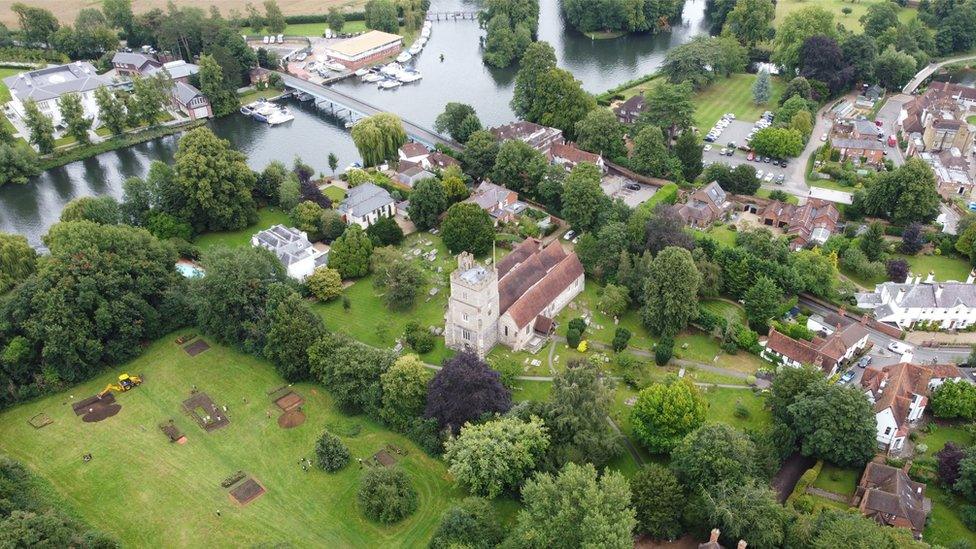Unearthing end-of-life care at 8th Century monastery
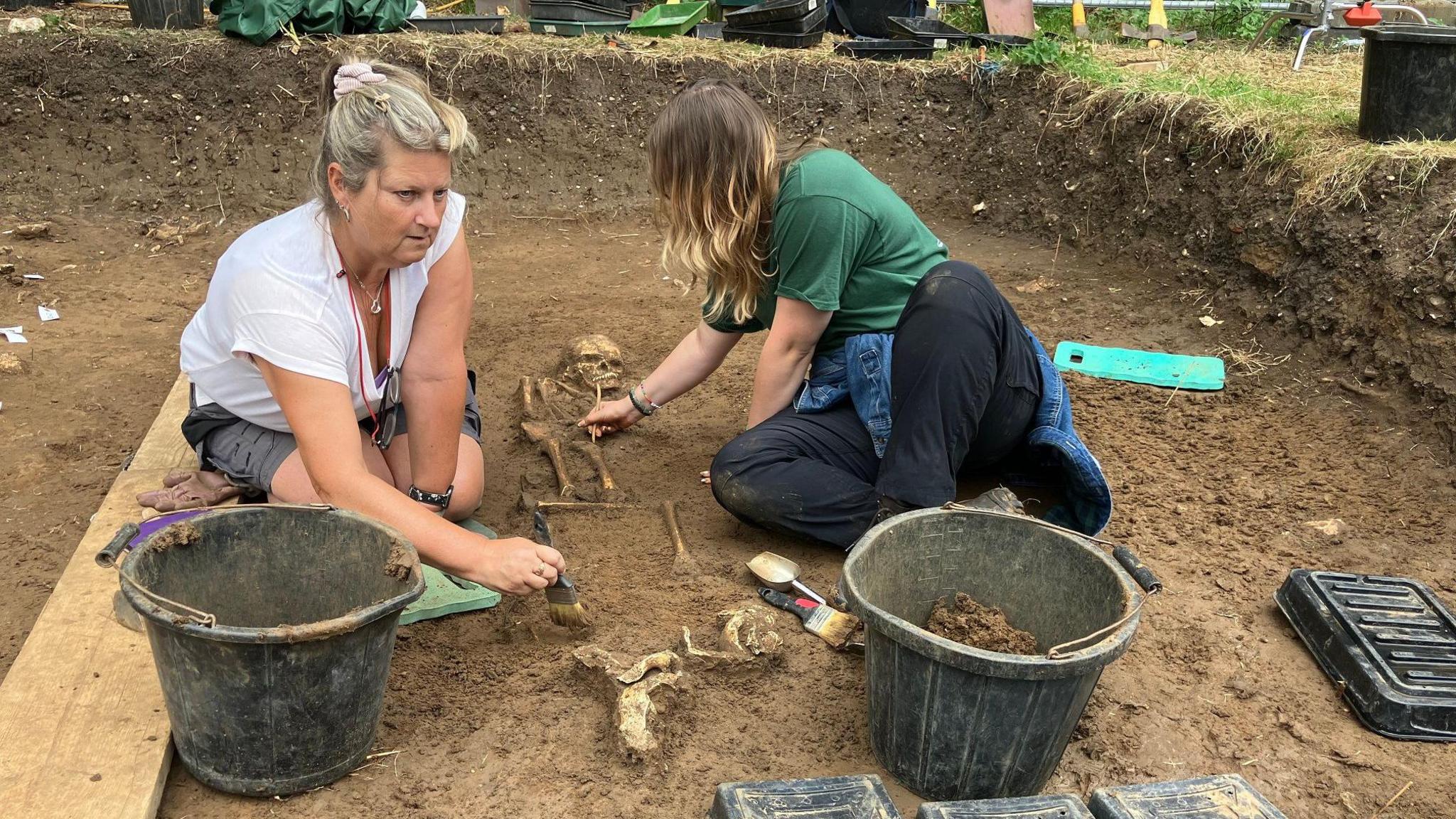
The team believe the Anglo-Saxon monastery may have been one of the UK's earliest hospices
- Published
A group of archaeology students have said their work feels "really important" after uncovering evidence of early end-of-life care during excavations at an 8th Century monastery.
University of Reading students and staff have been taking part in an annual dig at the site in Cookham, Berkshire, and a neighbouring cemetery.
The team first discovered the Anglo-Saxon site in Cookham, Berkshire, in 2021.
Thomas Hayes, director of the university's field school, said this year they had found evidence of illness and treatment in human remains, including bedsores, suggesting palliative care may have taken place.
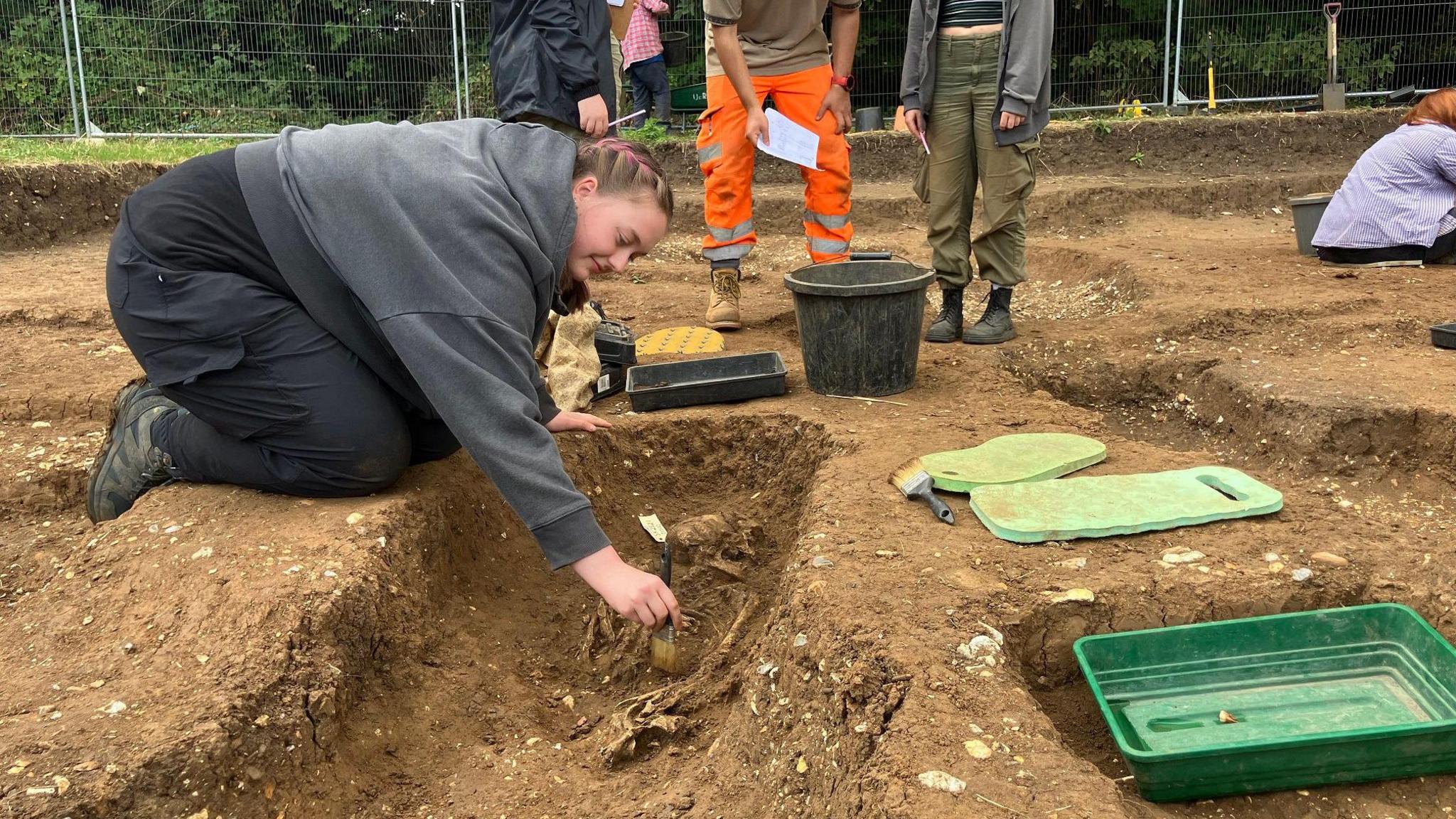
Thalia Argrave said the dig was a "valuable" experience
"It feels like I'm doing something really important," said first year undergraduate student Thalia Argrave.
"It's just the constant reminder that these were people, they were living their lives just as we're currently living our lives, and we're finding out about them and rediscovering them now. I'm really happy to be a part of [it]."
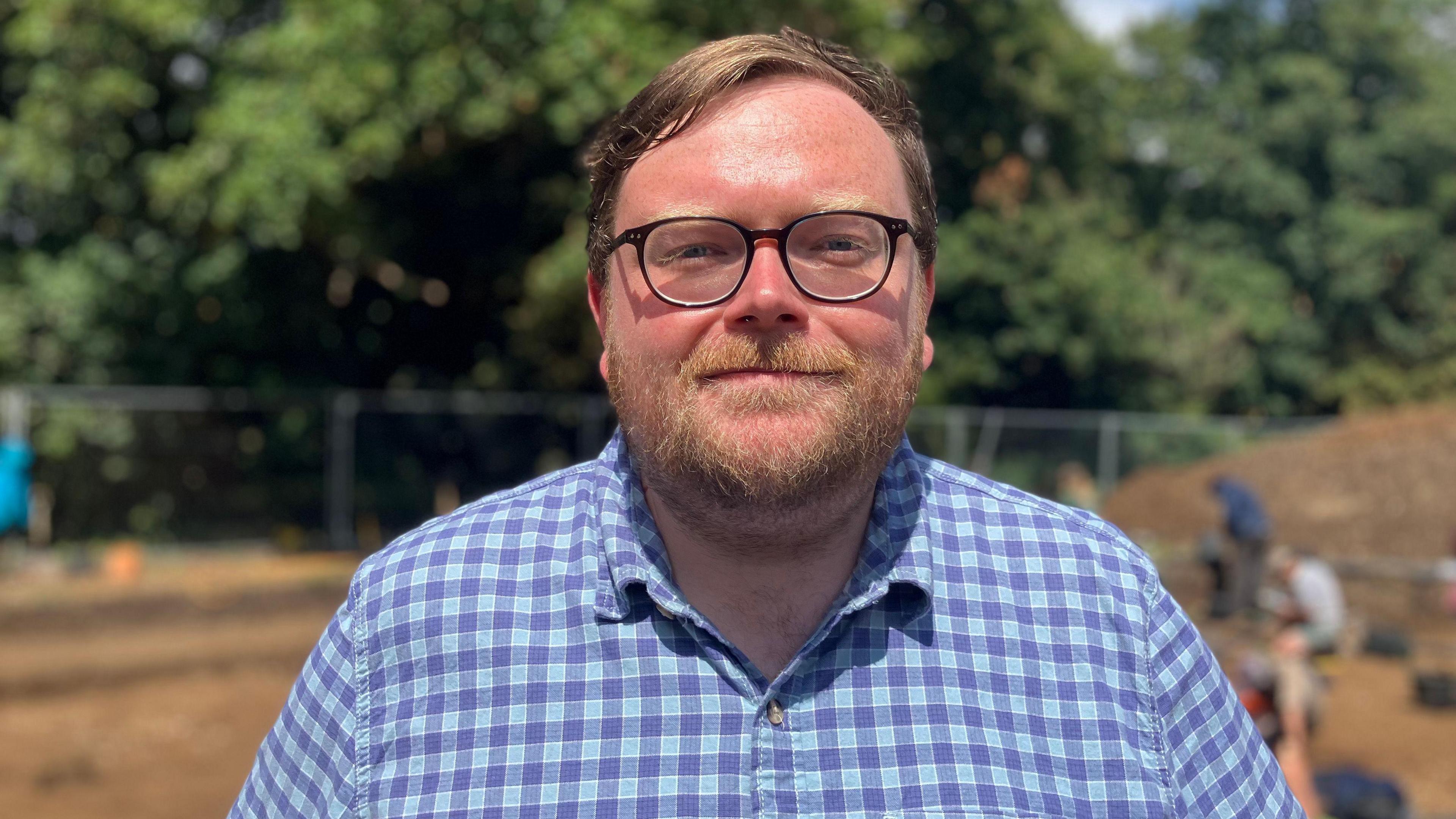
Thomas Hayes said archaeologists had found evidence of end-of-life care
Mr Hayes said the archaeologists had found "a lot more in the way of human remains", particularly "a number of juvenile remains".
The evidence of those in the monastery caring for the sick, he said, was "really important".
"At the time, care for the soul and care for the body were treated almost as the same - equal importance.
"But it's also showing the execution of this religious duty in the actual practice of this monastery.
"We don't always see that in the archaeological record but here we're seeing it very actively in the population that we're finding."
Ms Argrave said the team spent a year preparing for the dig, adding: "It's really valuable and important to be part of that first hand.
"There are experts everywhere in the trenches so we're asking lots of questions and learning so much."
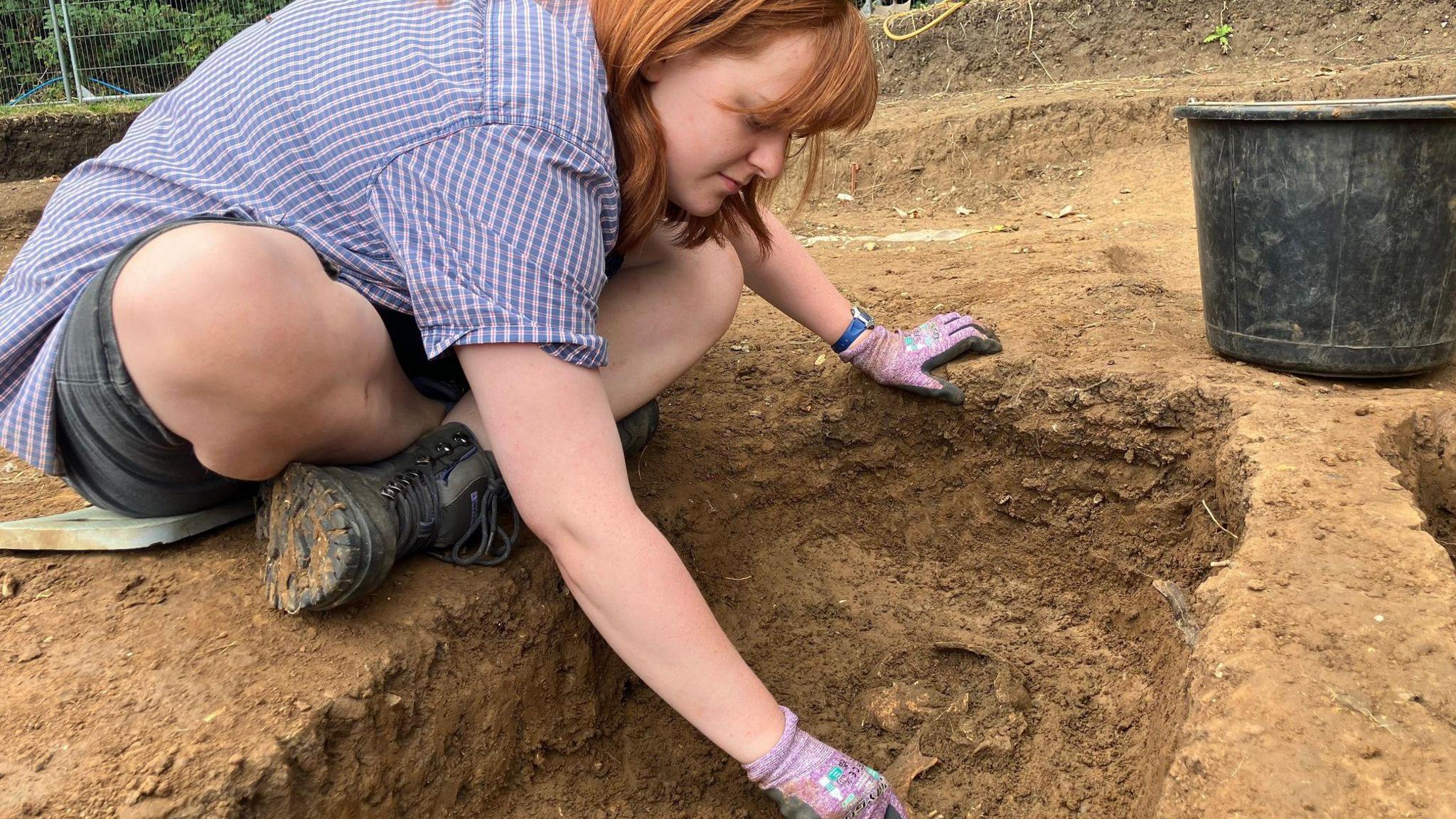
The skeletons unearthed "tell their own stories", said student Eleanor Rawlings
Eleanor Rawlings, another first year student, said taking part in the dig made her appreciate how much effort is involved.
"I have so much more appreciation for the work that goes into what they put in the museums, because this takes so long to slowly inch away all the soil and to get such a good clear outline," she said. "I'm loving it."
The excavated skeletons "tell their own stories", she added.
"The bones themselves can tell you so much more about what a person's life would have looked like in that time."
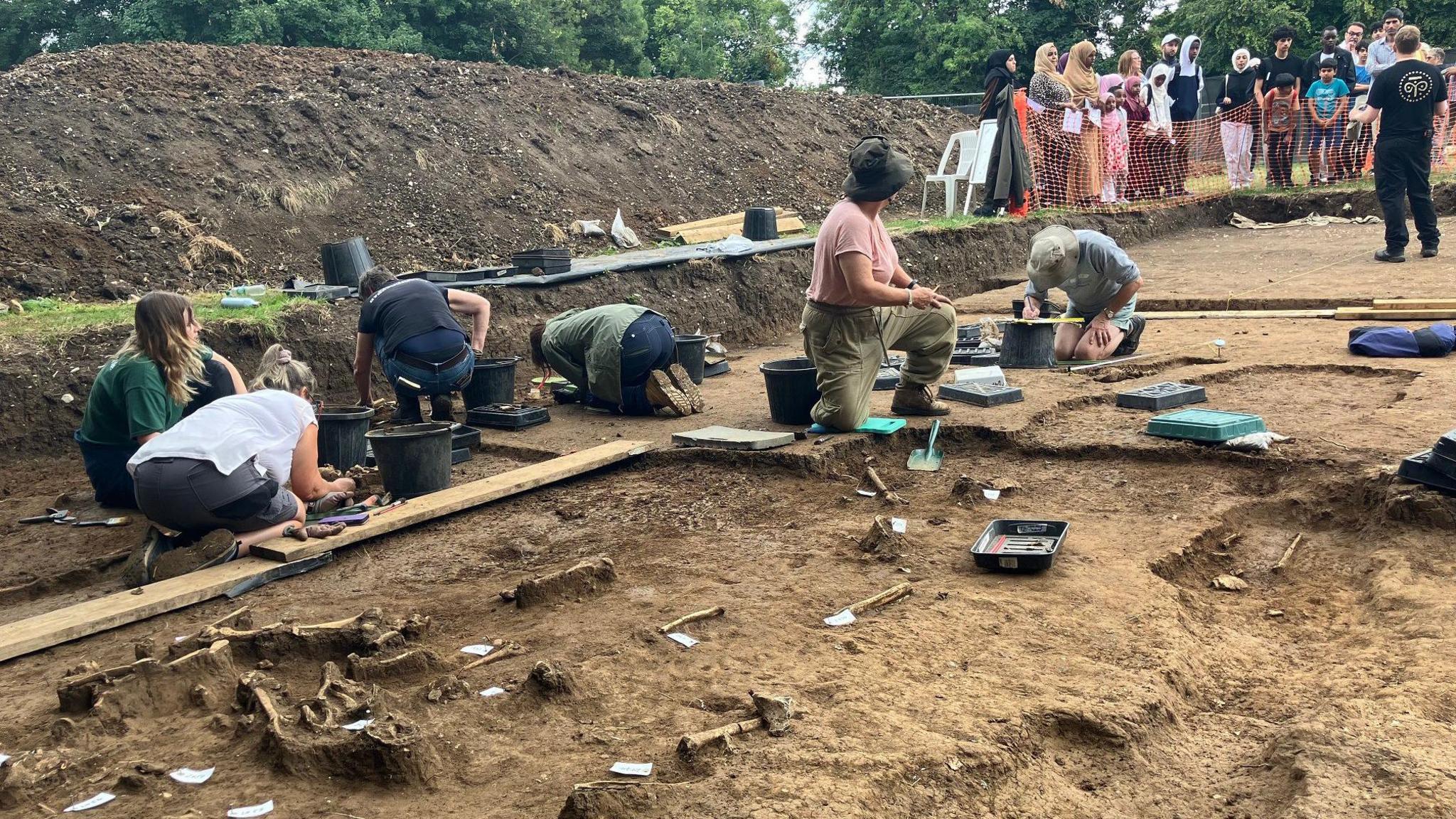
The monastery site has been excavated by Reading university staff and students every summer since 2021
Mr Hayes said it was interesting to see the students get involved.
"Some of the students, who had no expectations and didn't know what to expect from this, are really taking to it and really enjoying it.
"This year, we've got a fantastic group of students who are just getting stuck in and asking loads of really interesting questions and really engaging with the subject."
Get in touch
Do you have a story BBC Berkshire should cover?
You can follow BBC Berkshire on Facebook, external, X (Twitter), external, or Instagram, external.
Related topics
- Published13 August 2024
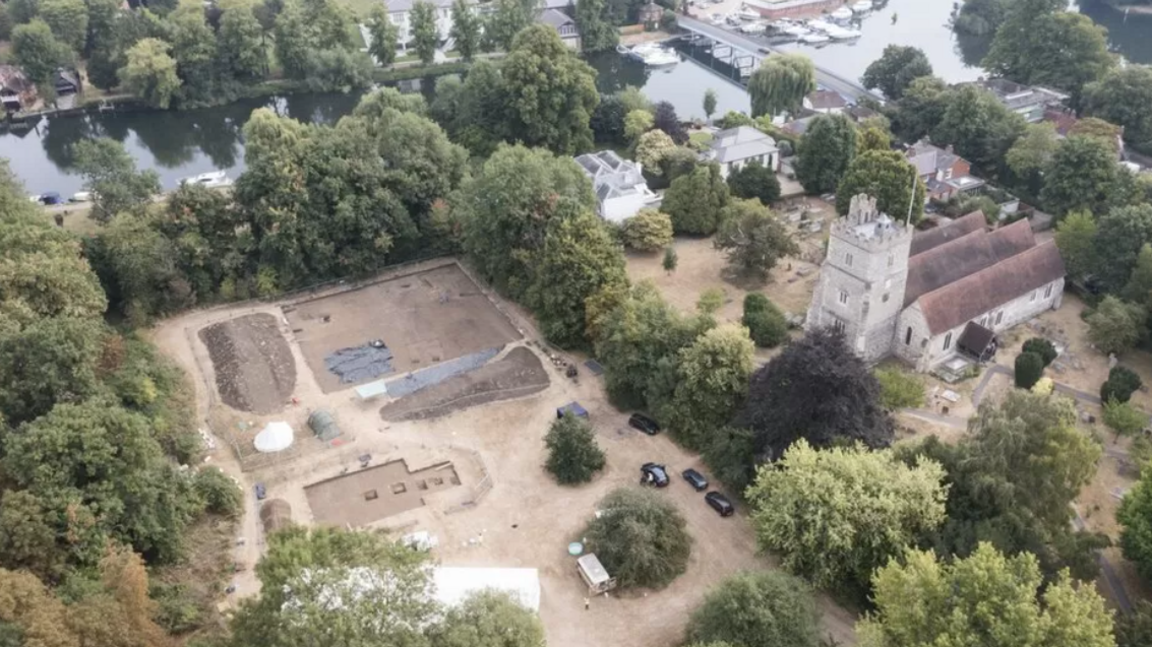
- Published9 August 2023
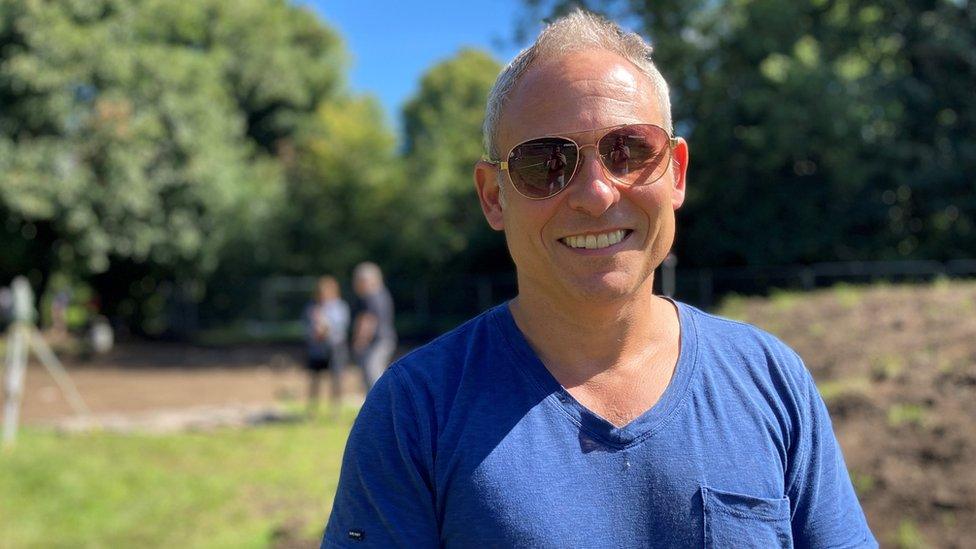
- Published4 September 2023
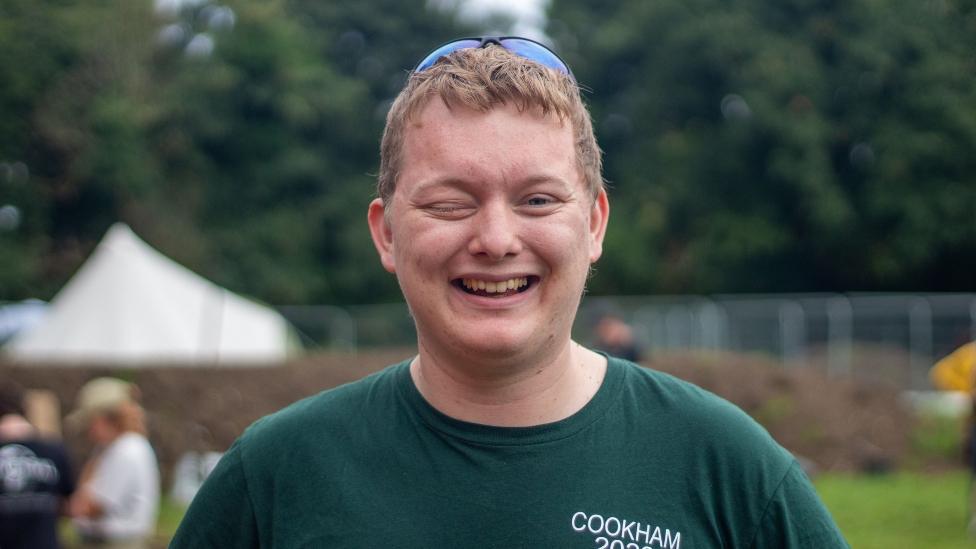
- Published26 August 2022
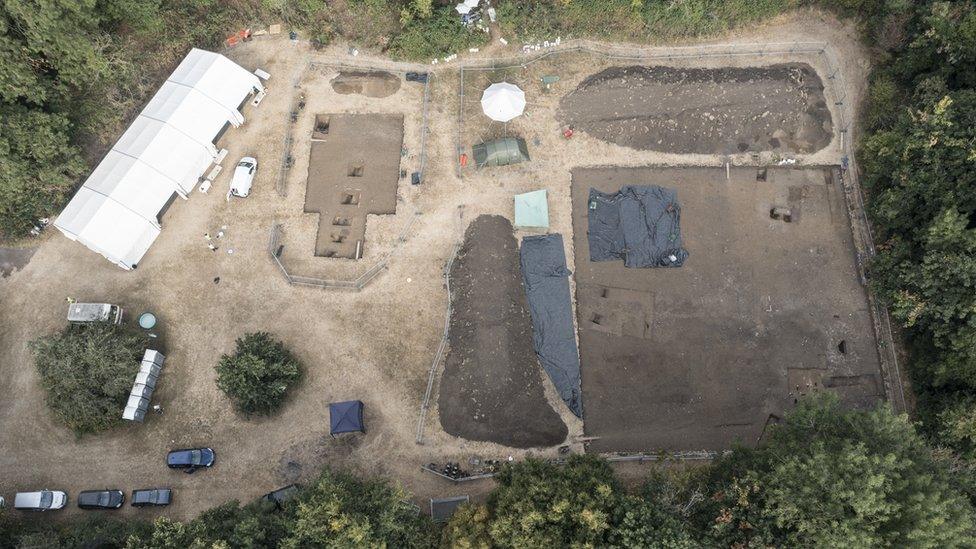
- Published19 August 2021
